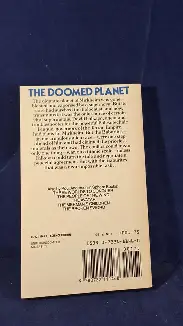Mirkheim, IX.
In an infodump on pp. 138-143, Poul Anderson summarizes Solar Commonwealth governmental measures and Polesotechnic League responses to them. It reads like a factual report of a real event:
a central banking commission;
limits on interest rates;
income tax;
an anti-trust rule;
compulsory arbitration of some disputes;
state loans to companies in difficulties;
subsidies to critical industries;
production quotas;
etc.
All this interferes with League activities but opposing it would be even more damaging.
"...by remaining on the scene the League companies would stay influential and could work for modifications." (p. 141)
We have heard that in real life.
"...the great bankers were not just handling money, they were creating it..." (p. 142)
I thought that that was what bankers did anyway: lend money that is not theirs, lend more than is in their possession and charge interest on it.
Tariffs are mentioned! Someone reading this post years later might not know why I highlight that point.
I will not summarize Anderson's summary in greater detail because all this is to be found earlier on this blog.

6 comments:
Bankers expand the money supply.
Kaor, Paul!
Some of the items listed are at least arguably beneficial, but others are very bad.
I see nothing wrong with banks lending out money entrusted to them. That is one of the things they are supposed to do, put money to work via people who hope to profit founding new businesses or expanding current enterprises. The interest they pay is the rent for using that money.
Hope this uploads.
Ad astra! Sean
Sean,
I did not - at least not at this stage - say that there was anything wrong with it. I said just that that was how I understood that banks worked. It is how the economy has had to develop.
"...put money to work..." Money does not work. People do, with hands and brains. The medieval church opposed "usury." I do not propose a return to medievalism but do point out that attitudes and practices have changed and will change again.
Paul.
Kaor, Paul!
Then I can only say I thought your comment re "lending out" was ambiguous.
No, it does make sense to say money can be put to work. Entrepreneurs who borrow money from a bank to found/expand a business do so hoping the goods or services they sell will satisfy the needs/wants of their prospective customers. It does not matter how intelligent and hard working those entrepreneurs and their employees are if they fail to sell those goods or services. It would be another example of how the marginal utility theory of value works.
That is why prudent bankers are so strict and cautious in how much and to whom they lend money. They want to have a reasonable hope borrowers will succeed in what they plan to do with loans, either found a successful business or being able to pay off a mortgage.
Hope this uploads.
Ad astra! Sean
Sean,
Money is not a substance or a commodity. It is marks on paper. Banks lend more than is in their possession. Thus, they do not lend an existent entity but pretend that it exists and hope that this risk pays off. It seems that the economy had to develop this way - in any case, it DID develop this way - but abundance will make it redundant.
Paul.
Paul: I think you're confusing money as we plebs experience it -- for buying things like food and housing -- and money as the very wealthy experience it, as a way of mobilizing resources for productive enterprise.
Post a Comment